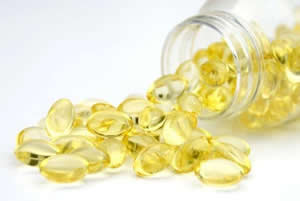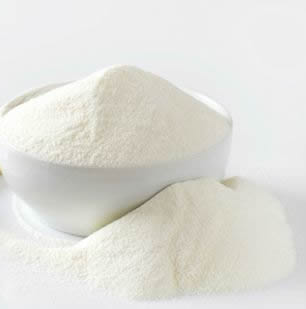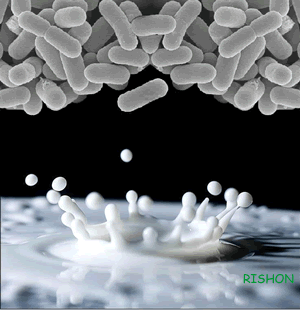Omega-3 Marine algae oil with essential fatty acids
Marine algae is the original source of marine algae oil (Docosahexaenoic Acid Oil), and it is farm-raised and grown in sterile fermenters where they feed on plant sugars. After a few days of this, the micro algae are expeller pressed to release their oil. The marine algae oil is made from source of microalgae and it is not fishy at all, it is as neutral as canola oil or vegetable oils. And algae DHA oil is a good vegetarian source of DHA.

Marine algae oil
Marine algae oil is the oil that is derived directly from micro algae. This oil contains DHA, which accounts for 97 percent of the omega-3 fats in the brain.
There is no risk of ocean-borne contaminants when using marine algae oil. Cooking oils, yogurts, juices, milk and nutrition bars are being fortified with marine algal oil now.
Marine algae oil Benefits
1. Supports Healthy Pregnancy
The omega-3 fatty acid DHA (Docosahexaenoic Acid) is essential for brain development during a healthy vegan pregnancy. Studies have shown that when a pregnant women consumes omega-3 fatty acids, it improves the child¡¯s development. Omega-3 requirements increase during pregnancy in order to aid brain growth, especially as it accelerates during the second half of pregnancy.
Researchers have used a variety of tests, such as general developmental milestones, problem solving and language development, to assess neurodevelopmental outcomes among infants whose mothers were supplemented with omega-3 fatty acids compared with those who were not.
A 2004 study conducted by Harvard Medical School and Harvard Pilgrim Healthcare found that higher maternal DHA consumption during pregnancy resulted in higher novelty preference on visual recognition memory and higher scores of verbal intelligence.
Animal studies have demonstrated that deprivation of omega-3 fatty acids, which is present in marine algae oil, during pregnancy is associated with visual and behavioral deficits that cannot be reversed with postnatal supplementation. This is why guidelines have recommended that pregnant women consume at least 200 milligrams of DHA per day.
2. Boosts Eye Health
The brain and eye are highly enriched with omega-3 fatty acids, which accumulate in these tissues during late fetal and early neonatal life. A scientific review conducted by the Agency for Healthcare Research and Quality (U.S.) states that ¡°clinical research has only scratched the surface with respect to understanding the possible utility of the intake of omega-3 fatty acids as a primary or secondary prevention in eye health.¡±
It¡¯s known that there are very high levels of DHA present in the retina, and the role of
DHA may be related to its biophysical effects on the cell membrane. It¡¯s believed that DHA may modulate the activity of membrane-bound enzymes, which are responsible for the maintenance of cellular function. It may also regulate the receptors and kinetics of membrane transport systems.
Macular degeneration is a condition that is age-associated vision loss and blurry vision related to damage to the macula, or center of the eye. This can be a result of aging, poor digestion, smoking, high blood pressure, exposure to UV radiation and a low-vegetable diet. A natural treatment for macular degeneration is omega-3 fatty acid capsules that contain DHA because it helps relieve intra-ocular pressure.
3. Supports Cardiovascular Health
Marine Algae oil helps regulate heartbeat, reduce blood pressure, decrease blood clot formation and reduce overall inflammation; this decreases the risk of heart attacks and strokes. Micro algae oil also helps reduce triglycerides and LDL cholesterol.
4. Aids Cognitive Development and Function
Omega-3 foods are important for cognitive development and function. The brain is made mostly of fat, and it functions especially well with high levels of DHA (Docosahexaenoic Acid), which help the brain¡¯s communication processes and reduce inflammation, which can help slow aging.
DHA (Docosahexaenoic Acid) is also required for the functional development of the brain in infants and maintenance of normal brain function in adults. The inclusion of plentiful DHA in the diet improves learning ability, whereas deficiencies of DHA are associated with deficits in learning.
Another interesting benefit of algal oil and other DHA foods is they may be able to reduce the symptoms of anxiety and depression. The European Journal of Neuroscience recently published a study showing that oil containing omega-3s reversed all anxiety-like and depression-like behavior changes induced in rats.
5. Improves Memory
Studies have shown that higher intakes of omega-3 fatty acids significantly reduce the incidence of Alzheimer¡¯s disease as well as vascular dementia; oils like algae also improve quality of life and memory in those affected by dementia.
Alzheimer¡¯s disease is a brain disorder that progressively causes memory loss, dementia and early mortality. Memory loss is caused when plaque forms in the brain.
6. Reduces Inflammation
Preliminary studies suggest that omega-3 fatty acids may help improve symptoms of osteoarthritis and joint pain. Inflammatory bowel disease may also be relieved with omega-3 supplementation.
Please see more of: Benefits of DHA
- Back:Know more about benefits of sea buckthorn oil for hair loss [2020-03-07]
- Next:Omega-3 Fatty Acids can strengthen immune system [2020-02-16]








